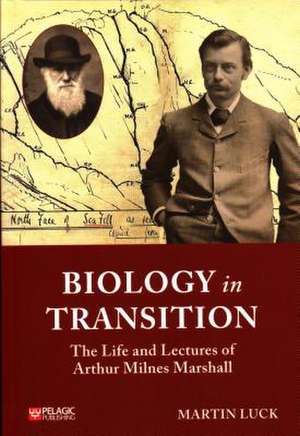Biology in Transition: The Life and Lectures of Arthur Milnes Marshall: History of Evolutionary Biology
Autor Martin Lucken Limba Engleză Hardback – 14 mai 2018
Preț: 554.04 lei
Preț vechi: 583.20 lei
-5% Nou
Puncte Express: 831
Preț estimativ în valută:
106.03€ • 110.29$ • 87.53£
106.03€ • 110.29$ • 87.53£
Carte tipărită la comandă
Livrare economică 14-28 aprilie
Preluare comenzi: 021 569.72.76
Specificații
ISBN-13: 9781784271664
ISBN-10: 1784271667
Pagini: 432
Dimensiuni: 156 x 234 x 27 mm
Greutate: 0.74 kg
Editura: Pelagic Publishing Ltd
Seria History of Evolutionary Biology
ISBN-10: 1784271667
Pagini: 432
Dimensiuni: 156 x 234 x 27 mm
Greutate: 0.74 kg
Editura: Pelagic Publishing Ltd
Seria History of Evolutionary Biology
Descriere
Arthur Milnes Marshall was a 19th Century scientist who gave academic and public lectures covering evolution, embryology, development and inheritance. Prof. Martin Luck has re-discovered these lectures - his careful curation, introductions to each lecture and copious annotations illuminate their significance as prequels to modern biology.
